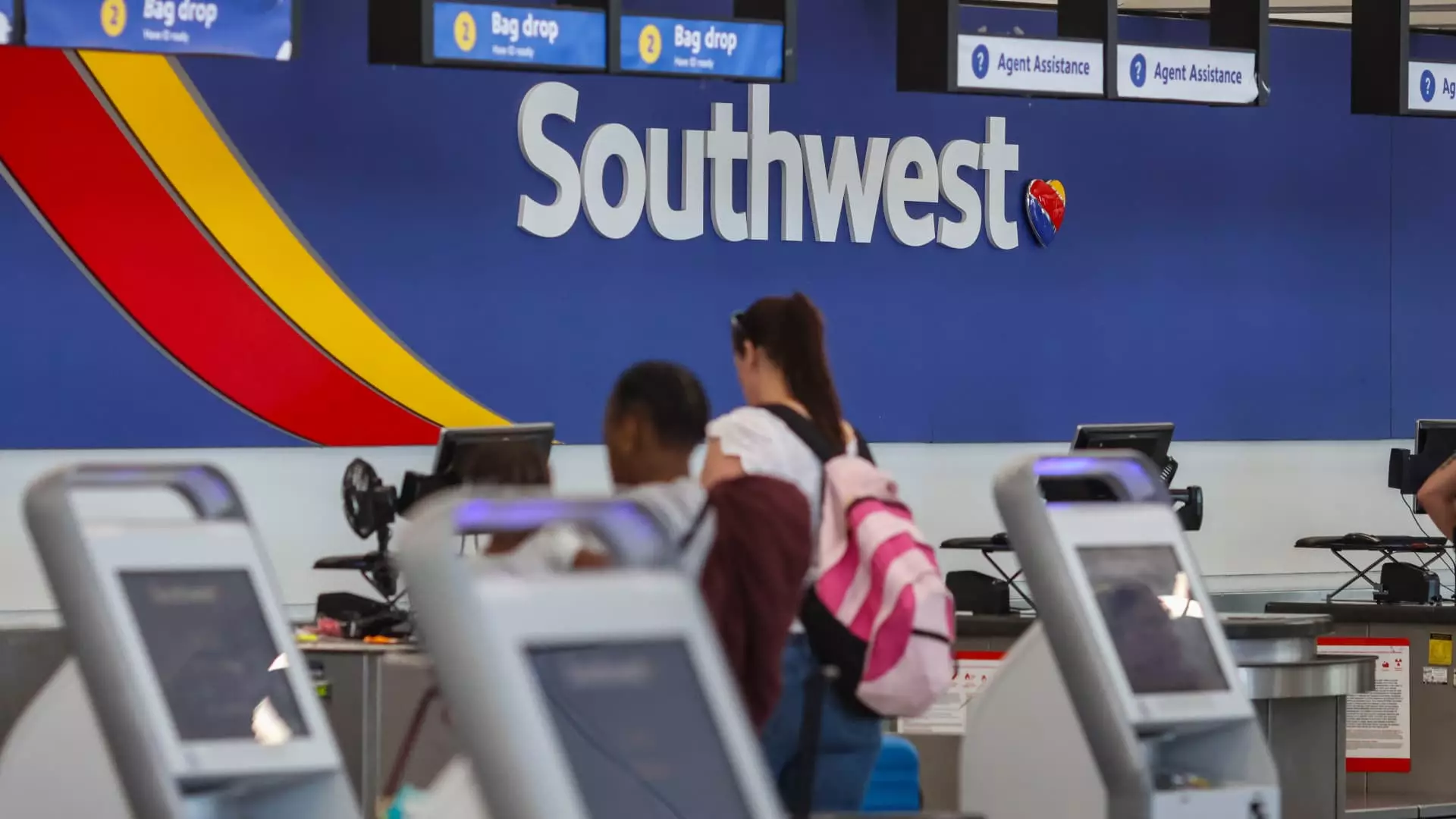In a significant maneuver, Southwest Airlines is poised to reduce its operational footprint in Atlanta, a critical hub in its network. This decision is set to result in the elimination of over 300 positions, including pilots and flight attendants, a development that has raised eyebrows in the industry. The announcement arrives on the heels of mounting pressures from activist investor Elliott Investment Management, compelling the airline to reassess its financial strategy ahead of its upcoming investor day. This context underscores the intricate balance airlines must strike between servicing demand and managing operational costs.
According to an internal memo revealed by CNBC, Southwest plans to trim its staffing in Atlanta by approximately 200 flight attendants and 140 pilots, reflecting a broader industry trend of workforce optimization. Notably, the airline has clarified that it is not shuttering its crew base in Atlanta. Instead, current employees will have the opportunity to bid for positions in different cities, highlighting a commitment to retaining talent even amid contraction. This move indicates a strategic approach to downsizing, ensuring that staff members are not left without options, while also addressing the reality of decreased operations.
The reduction in service is quite stark, with Southwest consolidating its operation from 18 gates to just 11 and scaling back the number of cities served from 37 to 21. Such drastic cuts inevitably raise questions about the long-term viability of the Atlanta base, especially considering the airport’s status as the world’s busiest and a crucial hub for Delta Air Lines. The challenges Southwest faces in this key market highlight the airline’s struggle to remain competitive and profitable in an ever-evolving industry landscape.
Southwest highlighted the necessity for these cuts in a memo to its employees, asserting that despite the challenges, employees’ performance is not in question; rather, the airline must confront prolonged financial losses. This admission reveals the harsh realities of the airline industry, where economic pressures can dictate operational strategies and force companies to make difficult decisions. The need to restore profitability is echoed in the airline’s intent to “optimize our network to meet customer demand,” a statement that reflects a broader trend among airlines to pivot away from loss-making routes while bolstering those that promise greater returns.
The backdrop of financial pressure is further complicated by external factors, including shifting booking patterns post-pandemic and ongoing aircraft delays from Boeing. The delays regarding the newly anticipated 737 Max 7 models have exacerbated Southwest’s operational challenges. In response, the airline is not just focusing on their Atlanta hub; it’s also launching new routes, such as overnight flights from Hawaii and increased services to Nashville, indicating a strategy aimed at reallocating resources towards more profitable ventures.
The announcements concerning cuts and adjustments occur in tandem with Southwest’s extended scheduling, which now includes ticket sales through June 4. This juxtaposition of cuts and expansions illustrates how airlines are attempting to navigate dual realities: the immediate need to streamline operations while simultaneously seeking growth opportunities in more profitable markets.
The most notable strategic shift is the decision to phase out open seating in favor of offering extra legroom, a significant move that points to changing passenger preferences and heightened expectations for comfort and service. These adaptations illustrate Southwest’s acknowledgment of competitive pressures and its commitment to evolving customer service paradigms while grappling with the implications of its downsizing in Atlanta.
As Southwest Airlines embarks on this challenging chapter, the decisions made regarding its Atlanta operations reflect broader trends within the aviation sector. Balancing cost-cutting measures and service quality is no small feat, especially in a market that demands agility in the face of operational constraints. The outcome of these changes will not only define the immediate future of Southwest in Atlanta but also set a precedent for how airlines approach workforce management and customer service in an industry fraught with unpredictability and fierce competition.


Leave a Reply